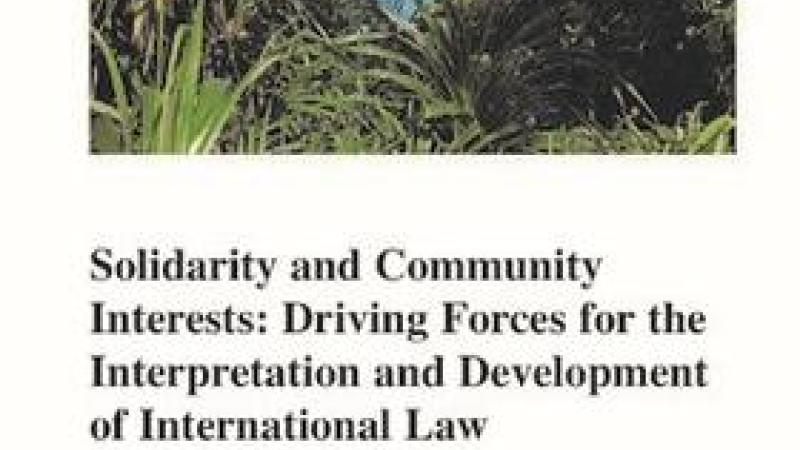
Solidarity and community interest may appear to be purely abstract notions. But in fact they may form the basis of a more flexible approach to international lawmaking than traditional formulas of legally binding commitments. Through an empirical analysis of existing and emerging public international law, this book traces these concepts in existing regimes and investigates the impact they have had and will continue to have on the progressive development of specific international regimes, particularly those serving the protection of the environment and of human rights. It discusses how through these two regimes these concepts have changed the international normative order and explores the challenges such changes have created for implementation and enforcement. One such challenge is the lack of an adequate dispute settlement regime, and the book closes with some practical suggestions for an appropriate mechanism.